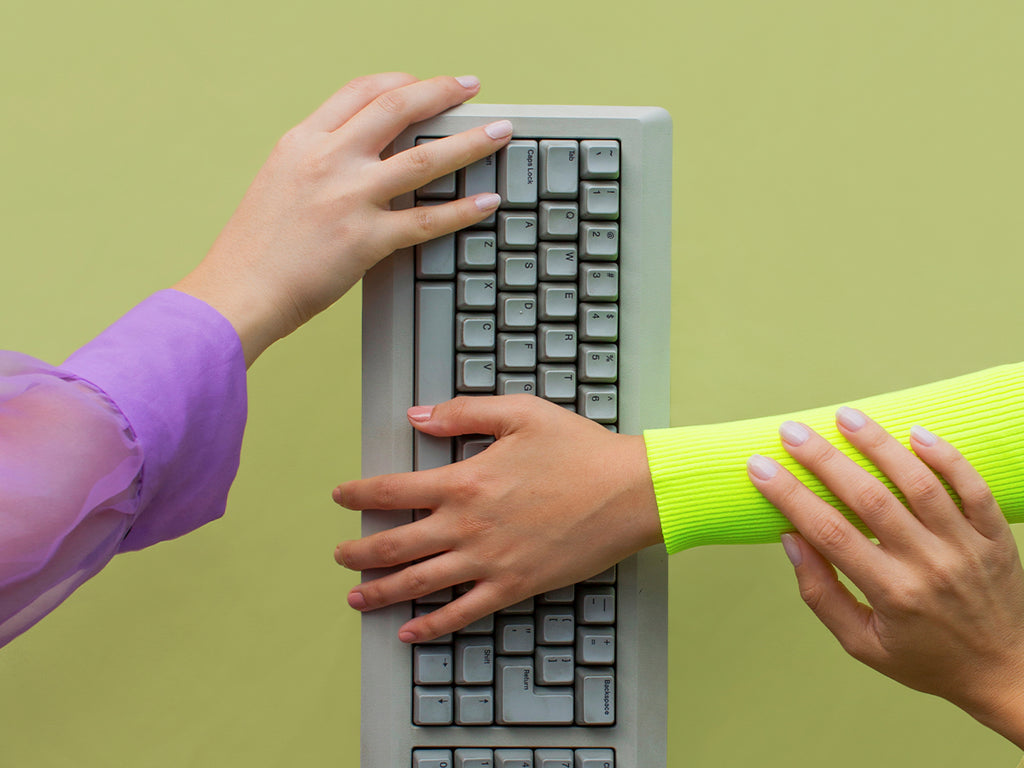I remember feeling uneasy the minute I smelled food in my classroom. The lunch bell brought an assault on my nervous system. Quite frankly, the idea of eating in a cafeteria or lunchroom still makes me cringe to this day.
Although I probably could have told you at many points that this was a response to my own dysfunction with food; it was, I don’t think I separated some of the larger and more interesting truths about this until recently.
Today, I spend my lunchtimes in my office where I have the luxury of having private moments with food. Nibbling here and there as I please without the potential to either offend or be offended by the onslaught of stimuli that is the lunchroom for many. To be clear, the stimuli isn’t just the sense that I so viscerally felt as a youth, but the words that are multiplying.
Ironically, in this same private snack oasis, I chat with clients wanting to repair their relationship with food. I learn many things from them, but what has become increasingly clear is that there is an outbreak in the workforce.
Water cooler chit-chat has turned toxic and our food (and conversations about it) have become dominated by diet culture.
Ok, so the 10 year old in me immediately wants to say here: ‘see, I knew community dining wasn’t a good idea!’ But, that would be too simple of an answer. Avoidance isn’t the solution. How we are relating to our food has changed so much over the last few decades that we have bypassed reverence and the symbolism involved in breaking bread with one another. We’ve traded it in for food and body-shaming or the latest elimination or high fat diet, sometimes totally unknowingly.
Food is conversation fodder, undoubtedly.
But, we are taking things so far that disorders are playing out around the table and we are renaming them discipline and virtuosity.
Using our food commentary to fuel our sense of worth, or lack there of it, is problematic and allows us to only further disconnect from our own truth via the noise pollution that we hear daily.
While we all hold belief systems about food, the impact of sharing these with others should be considered. You may be unknowingly triggering someone over what you might think is harmless lunchroom conversation. Studies show that up to 65% of women have struggled with some form of disordered eating. This isn’t a call for censorship, but rather, an ask to read the room and think of the implications your words can have.
Meals can be a powerful time to connect, to recalibrate and nourish from a cellular and societal stance. We have the opportunity to engage differently if we want to. When we enter lunchtime in a state of fight or flight, whether in the face of real or perceived threat, we are actually shutting down our digestive system and cognitive ability. The result? You don’t digest your food optimally and probably feel more bloated. This vicious cycle that lends itself to diet culture is primed for repetition.
I have a sneaking sense that we are talking about food and our strategies around it because we are attempting to feel more connected and accepted by our peers. Although alluring to the pleasure centres in our brain, this topic has the potential to make us feel more disconnected than ever.
We can’t run away from every conversation about food—that’s just not realistic. What we can do is create boundaries that reinforce value systems that align with our truth, not just some trend. Next time you enter into the arena of diet conversation, get curious. Where do these beliefs come from? Are they yours or someone you follow on social media? What are you really trying to say when you ask someone what diet they are on? Why are you judging what’s on your plate? If you still want to engage in the conversation, maybe save it for after dessert. Food for thought.
This post is tagged as:
You may also like...
The Latest
People & Places
How Ara Katz is Redefining “Self-Care” as Rooted in Science with Seed
The co-founder, mother, and self-proclaimed serial entrepreneur unpacks her philosophy on what it means to be well. Ara Katz hates the word “success”. Not because of its listed definition in a di...

Do Good Werk
9 Passive-Aggressive Email Phrases That Are Basically Evil
A Rosetta Stone for every time you want to :’).

Woo Woo
Get to Know Your Astrological Birth Chart
How to find meaning in the stars — and what it means for you.

People & Places
The 5 Best Places In New York To Meet Your Next Investor
Where to rub shoulders with the city's movers and shakers.

Do Good Werk
10 Unhealthy Thoughts You Convince Yourself Are True as a Freelancer
If you work alone, you might be particularly susceptible to distorted thoughts that hurt your mental health.

People & Places
Creating a Conference-Meets-Summer-Camp for Adult Creatives
An interview with Likeminds founders Rachael Yaeger and Zach Pollakoff This past September, I sat in front of an obituary I wrote for myself after a session with a death doula. No, I didn’t know w...

People & Places
When Something Golde Stays: An Interview with Golde’s Co-CEOs
“For us it was never a question,” says Issey Kobori, speaking of the decision to build a business with his partner Trinity Mouzon Wofford. At just shy of 27, Kobori and Wofford have secured a host ...

Better Yourself
Are They Toxic? Or Are They Human?
There’s a difference between putting up boundaries and putting up walls, and the latter is what breaks relationships.

Do Good Werk
How To Combat Seasonal Affective Disorder At Work
Here’s what to do if seasonal affective disorder starts to take a toll at the office.

People & Places
Reclaiming Womxn's Wellness Spaces from a White-Dominated World
How The Villij built a collective that their community can connect to.









